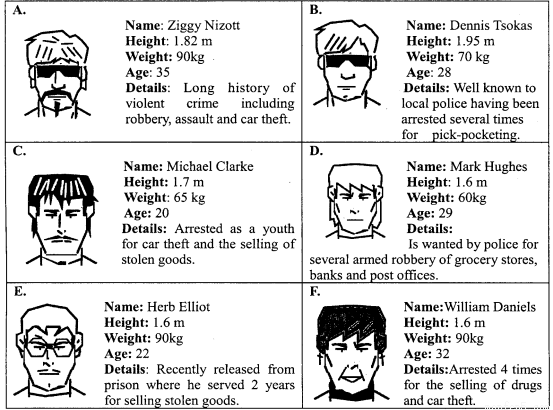题目内容
Years ago, there lived a wealthy man named Mr. Cooper who, with his dearest young son John, loved art collecting. Together they traveled around the world, collecting the finest art treasures.
One winter, war came to the nation, and John left to serve his country. After only a few short weeks, his father received a telegram reading that John had died while saving a fellow soldier. Filled with sadness, the old man cried. On the coming Christmas morning, a soldier called on him and gave him a picture of John.
The following spring, the old man became ill and passed away. According to his will, all of his works of art would be auctioned (拍卖) on Christmas Day, when he had received the greatest gift of his life. The day soon arrived and art collectors from around the world gathered to buy some of the world’s greatest paintings. The auction began with a painting of the old man’s son. “Who will open the bidding (出价) with $100?” the auctioneer (拍卖人) asked. Minutes passed, but no one spoke. Finally, a neighbor of the old man’s spoke. “Can I take the painting for ten dollars? It is all I have, and he is a good man.”
“Will anyone go higher?” called the auctioneer. After more silence, the auctioneer said, “Going once, going twice, gone.” The gavel(槌)fell. “Now we can get on to the real treasures,” someone shouted angrily. But the auctioneer said that the auction was over. Someone asked, “It’s over? We didn’t come here for a picture of some old guy’s son. There are millions of dollars worth of art here!” The auctioneer replied, “It’s very simple. According to the will of the father, whoever takes the son ... gets all.”
1. The underlined words “the greatest gift” in Paragraph 3 refer to _______.
A. a picture of John
B. the painting John collected
C. the finest work of art
D. the telegram about his son
2. It can be inferred from the passage that______.
A. the old man and the auctioneer were good friends
B. no art collectors wanted to buy Mr. Cooper’s collection of art
C. John was a successful art collector and an excellent artist
D. the old man, Mr. Cooper, loved his son very much
1.A
2.A
【解析】
试题分析:本文讲的是一个富有的收藏家,因战争失去了儿子。圣诞节早上,一位士兵来拜访他,并给了他一张他牺牲的儿子——约翰的照片。老人去世后,在圣诞节的拍卖会上,他的遗愿是谁拍走了他儿子的照片,谁就将得到他的所有收藏
1.1】推理判断题 根据第二段得知这位老人的儿子John ,因为战争去服兵役、牺牲。圣诞节早上,一位士兵来拜访他,给了他一张约翰的照片。老人去世后,拍卖会上the greatest gift of his life 应该是,“他儿子的照片”故选A .
2.2】推理判断题 最后一段的最后一句得知选D. According to the will of the father, whoever takes the son ... gets all.”按照父亲的意愿,在拍卖会上无论谁拍走了他儿子的照片,就会得到他的全部收藏。
考点:考查故事类阅读

